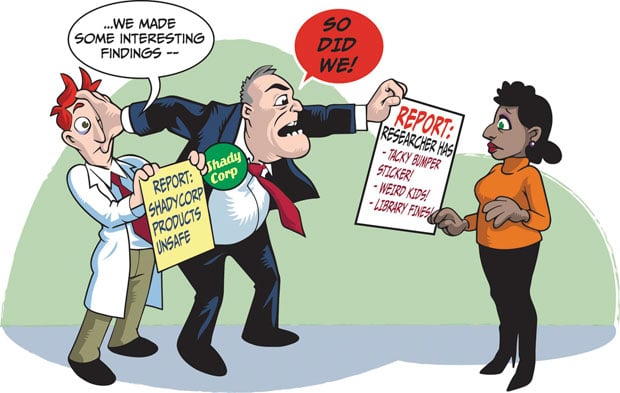Today, members of the House Committee on Energy and Commerce sent a letter to EPA requesting more information about a meeting with an industry trade group, the American Chemistry Council (ACC), attended by Richard Yamada, the Deputy Assistant Administrator for the Office of Research and Development.
The letter and subsequent reporting (paywalled) is based on additional documents obtained by the Union of Concerned Scientists through a Freedom of Information Act request last month. EPA subsequently took down those documents, in an action similar to what happened with some of our other public records requests.
POLITICO reports:
Top House Democrats are raising concerns about a meeting between one of EPA Administrator Scott Pruitt’s top aides and representatives of the chemicals industry one day after a White House official raised alarm about a study of contaminants that has been stalled for months.
The American Chemistry Council represents companies that could face more expensive cleanup requirements if the HHS study were finalized, and the trade group appears to have had the ear of a top EPA official when it was being discussed internally, the House Democrats said.
A meeting titled “ACC Cross-Agency PFAS Effort” appears on the Jan. 31 calendar for Richard Yamada, EPA’s deputy assistant administrator for research and development. The calendar was obtained by the Union of Concerned Scientists under the Freedom of Information Act and cited by the Democrats in their letter to Pruitt Monday. One day earlier, Yamada and other EPA officials had received an email from the White House seeking to delay publication of the health study poised for release by HHS that would have increased warnings about certain PFAS chemicals.
 A former staffer for the anti-science chairman of the House Committee on Science, Space, and Technology, Yamada attended a meeting with the ACC to discuss EPA’s cross-agency efforts to address PFAS. As we chronicled in 2015, the ACC has a history of obstructing stronger science-based public health protections from harmful chemicals and have frequently used tobacco industry tactics to pressure policymakers. An ACC spokesman confirmed the meeting with POLITICO but said that the suppressed PFAS study (also discovered by a UCS public records request) was not discussed.
A former staffer for the anti-science chairman of the House Committee on Science, Space, and Technology, Yamada attended a meeting with the ACC to discuss EPA’s cross-agency efforts to address PFAS. As we chronicled in 2015, the ACC has a history of obstructing stronger science-based public health protections from harmful chemicals and have frequently used tobacco industry tactics to pressure policymakers. An ACC spokesman confirmed the meeting with POLITICO but said that the suppressed PFAS study (also discovered by a UCS public records request) was not discussed.
The meeting, which occurred on January 31, was held the day after the now infamous “public relations nightmare” email was sent by an unnamed White House staffer.
The letter from members of the House Energy and Commerce Committee is the latest in a string of oversight letters related to the potential suppression by the White House and EPA of a key health assessment that is being conducted by the Agency for Toxic Substances and Disease Registry. Late last week, Representatives Brendan F. Boyle and Brian K. Fitzpatrick led another bipartisan letter demanding the release of the ATSDR study on the human health effects of PFAS chemicals.
Tomorrow, EPA is convening a national summit to discuss PFAS and the issues that states and communities are facing around the country. Unsurprisingly, one of the scheduled speakers is Jessica Bowman, an ACC attorney, who is talking first thing in the morning. And before a story in The Intercept, EPA failed to invite any community organizations and/or members to attend. After the reporting however, EPA has invited Andrea Amico, founder of Testing for Pease.
It remains unclear whether press will be able to attend, and according to the summit website, it appears as though the public can only view parts of the meeting online. Hopefully though, the agency will use tomorrow’s meeting as an opportunity to commit vital resources and concrete next steps to help remove these toxic chemicals from our environment.

